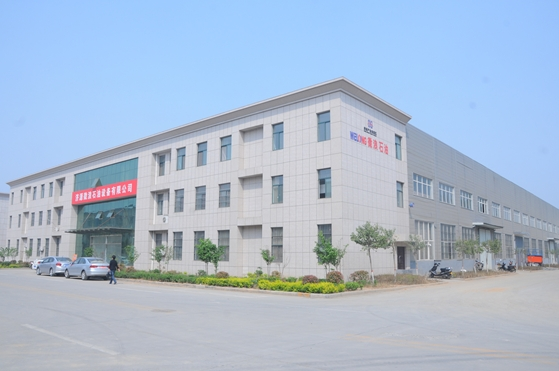The Role of Casing Power Tongs in Well Integrity
Enhancing Casing Connection Quality
Casing power tongs significantly elevate the quality of casing connections, a critical factor in maintaining well integrity. These advanced tools apply precise and consistent torque to each casing joint, ensuring optimal thread engagement and sealing. This level of accuracy is difficult to achieve with manual methods, making power tongs indispensable for creating robust, leak-resistant connections. The improved connection quality directly translates to enhanced well integrity, as it minimizes the risk of casing failures and potential environmental hazards.
Precision Torque Control
One of the key advantages of casing power tongs is their ability to deliver precise torque control. This feature allows operators to apply the exact amount of torque specified for each casing type and size, preventing both under-tightening and over-tightening. Proper torque application is crucial for maintaining the structural integrity of the casing string and ensuring effective sealing at each connection point. By eliminating guesswork and human error in torque application, power tongs contribute significantly to the overall integrity and longevity of the well.
Consistency in Casing Makeup
Consistency is paramount in well construction, and casing power tongs excel in this aspect. These tools provide a standardized approach to casing makeup, ensuring that each joint is connected with the same level of precision and care. This uniformity is essential for creating a casing string that can withstand the diverse pressures and stresses encountered throughout the well's lifecycle. Consistent casing makeup also facilitates more accurate integrity testing, as it eliminates variables that could skew test results.
Advancements in Well Integrity Testing Techniques
Integration with Digital Monitoring Systems
Modern casing power tongs are often integrated with sophisticated digital monitoring systems, marking a significant advancement in well integrity testing techniques. These systems provide real-time data on torque, turns, and other critical parameters during the makeup process. This integration allows for immediate analysis of connection quality and enables early detection of potential issues. The ability to capture and analyze data in real-time not only improves the accuracy of integrity testing but also provides valuable insights for future well planning and maintenance strategies.
Enhanced Pressure Testing Capabilities
Casing power tongs contribute to enhanced pressure testing capabilities, a crucial aspect of well integrity assessment. By ensuring precise and consistent casing connections, these tools create a more reliable foundation for pressure tests. This improved baseline allows for more accurate and meaningful pressure test results, helping operators identify potential weak points or leaks in the casing string with greater precision. The enhanced pressure testing capabilities facilitated by power tongs ultimately lead to more thorough and reliable well integrity assessments.
Improved Non-Destructive Testing Methods
The use of casing power tongs has paved the way for improved non-destructive testing methods in well integrity assessment. The consistent and precise nature of connections made by power tongs allows for more effective use of techniques such as ultrasonic testing and electromagnetic inspection. These non-destructive methods can more accurately detect flaws or weaknesses in the casing string, providing valuable insights into the well's integrity without compromising its structure. This advancement in testing methodology contributes to more comprehensive and reliable integrity assessments throughout the well's lifecycle.
Impact on Well Safety and Operational Efficiency
Reducing Human Error and Improving Safety
Casing power tongs significantly reduce the risk of human error in the well construction process, thereby enhancing overall safety. The automated nature of these tools minimizes the need for manual handling of heavy equipment and reduces the physical strain on workers. This automation not only improves the consistency of casing connections but also decreases the likelihood of accidents and injuries on the rig floor. By creating a safer working environment, power tongs contribute to improved operational efficiency and reduced downtime due to safety incidents.
Enhancing Operational Efficiency
The use of casing power tongs markedly enhances operational efficiency in well construction and integrity testing. These tools can operate faster and more consistently than manual methods, significantly reducing the time required for casing runs. The improved speed does not come at the cost of quality; instead, it ensures that each connection is made to the same high standard. This efficiency translates to reduced rig time, lower operational costs, and faster well completion, all while maintaining or improving the integrity of the well.
Long-term Cost Benefits
While the initial investment in casing power tongs may be substantial, the long-term cost benefits are significant. The improved well integrity resulting from precise casing connections leads to fewer workover operations and reduced maintenance costs over the life of the well. Additionally, the enhanced efficiency in well construction and testing processes results in shorter project timelines and lower overall operational expenses. These cost savings, combined with the potential for extended well life and improved production rates, make casing power tongs a valuable investment for oil and gas companies focused on long-term operational success.
In conclusion, casing power tongs have revolutionized well integrity testing by providing unprecedented precision, consistency, and efficiency in casing connection and well construction processes. Their impact extends beyond mere technical improvements, encompassing enhanced safety standards, operational efficiency, and long-term cost benefits. As the oil and gas industry continues to evolve, the role of casing power tongs in ensuring well integrity is likely to become even more crucial. For those seeking to optimize their well integrity testing processes and improve overall operational outcomes, investing in high-quality casing power tongs is a strategic decision that can yield significant returns. To learn more about how casing power tongs can benefit your operations, please contact us at oiltools15@welongpost.com.

